Diatomaceous Earth in veggie garden?
ckbozeman
14 years ago
Featured Answer
Sort by:Oldest
Comments (17)
organicguy
14 years agolast modified: 9 years agoKimmsr
14 years agolast modified: 9 years agoRelated Professionals
Owings Mills Landscape Architects & Landscape Designers · Sand Springs Landscape Architects & Landscape Designers · Forest City Landscape Architects & Landscape Designers · Chelmsford Landscape Contractors · Danvers Landscape Contractors · Lancaster Landscape Contractors · Painesville Landscape Contractors · River Ridge Landscape Contractors · Westford Landscape Contractors · Raytown Landscape Contractors · Elkridge Decks, Patios & Outdoor Enclosures · Baton Rouge Decks, Patios & Outdoor Enclosures · Carlisle Decks, Patios & Outdoor Enclosures · Saint Louis Park Decks, Patios & Outdoor Enclosures · Schaumburg Decks, Patios & Outdoor Enclosuresmaddie_maddox
14 years agolast modified: 9 years agoKimmsr
14 years agolast modified: 9 years agockbozeman
14 years agolast modified: 9 years agoorganicguy
14 years agolast modified: 9 years agoena_louise
14 years agolast modified: 9 years agoKimmsr
14 years agolast modified: 9 years agogolphr_cox_net
13 years agolast modified: 9 years agotim_edwards20_yahoo_com
13 years agolast modified: 9 years agoshebear
13 years agolast modified: 9 years agojolj
13 years agolast modified: 9 years agorhizo_1 (North AL) zone 7
13 years agolast modified: 9 years agojolj
13 years agolast modified: 9 years agorhizo_1 (North AL) zone 7
13 years agolast modified: 9 years agojolj
13 years agolast modified: 9 years ago
Related Stories
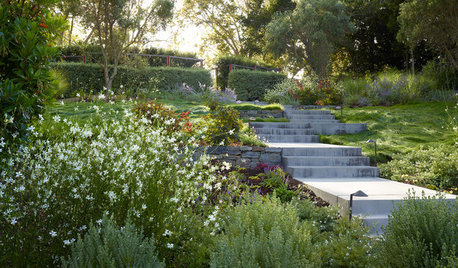
EARTH DAY5 Ideas for a More Earth-Friendly Garden
Consider increasing the size of garden beds, filtering rainwater and using plants to reduce energy use
Full Story
EDIBLE GARDENSHow to Grow Your Own Sweet Summer Crops
This guide will help any gardener get started on growing the freshest warm-season veggies and berries for summer
Full Story
FARM YOUR YARDHow to Build a Raised Bed for Your Veggies and Plants
Whether you’re farming your parking strip or beautifying your backyard, a planting box you make yourself can come in mighty handy
Full Story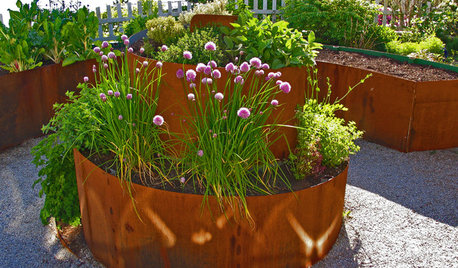
URBAN GARDENSContainers Make Growing Edibles a Cinch
If life hands you a lack of land, grow lemons — with a few basics, you can proudly reap the fruits, veggies and herbs of your labor
Full Story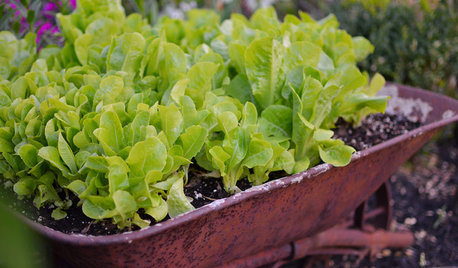
FARM YOUR YARD10 Easy Edibles to Grow in Containers
These herbs, vegetables and fruits are just as happy in a pot as they are in the ground
Full Story
GARDENING AND LANDSCAPINGPermeable Paving Soaks Up Rain
Design garden hardscaping that allows rain to penetrate through to the earth below
Full Story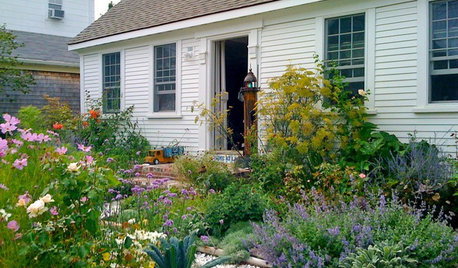
GARDENING GUIDESVegetables and Flowers Mix in Beautiful Edible Gardens
Ornamentals, meet your edible garden mates. We know you'll get along just beautifully
Full Story
GARDENING AND LANDSCAPINGBid Bad Garden Bugs Goodbye and Usher In the Good
Give ants their marching orders and send mosquitoes moseying, while creating a garden that draws pollinators and helpful eaters
Full Story
EDIBLE GARDENSGarden BFFs? Why Your Vegetables Are Begging for Companion Plants
Foster friendships among plants for protection from pests, pollination support and color camaraderie
Full Story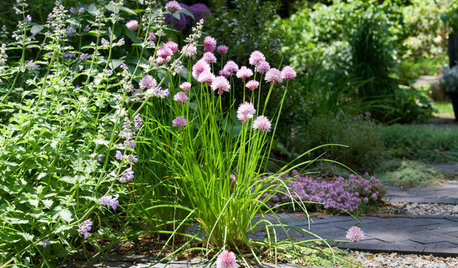
EDIBLE GARDENS8 Surefire Vegetables and Herbs for Beginning Gardeners
Learn the edible plants that are popular and easy to grow in a backyard or container garden
Full Story





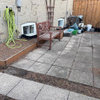


Kimmsr